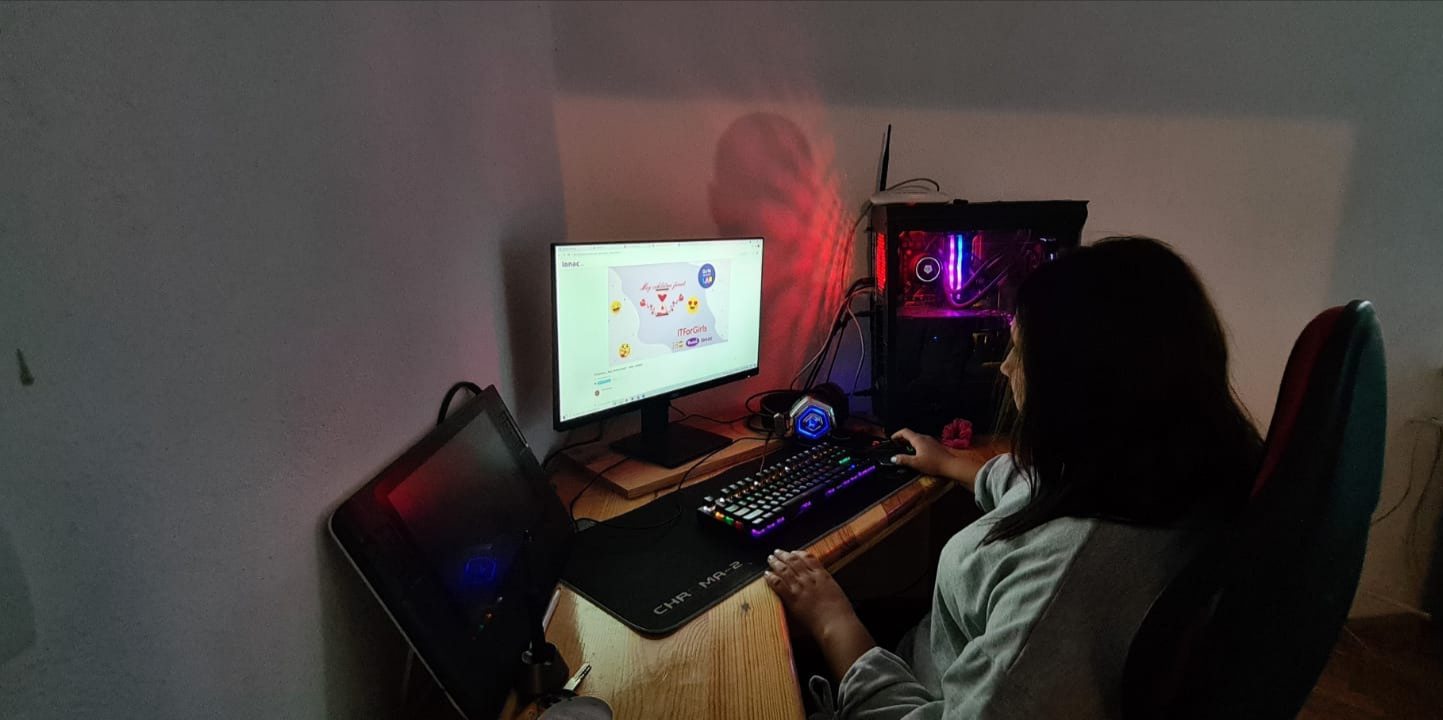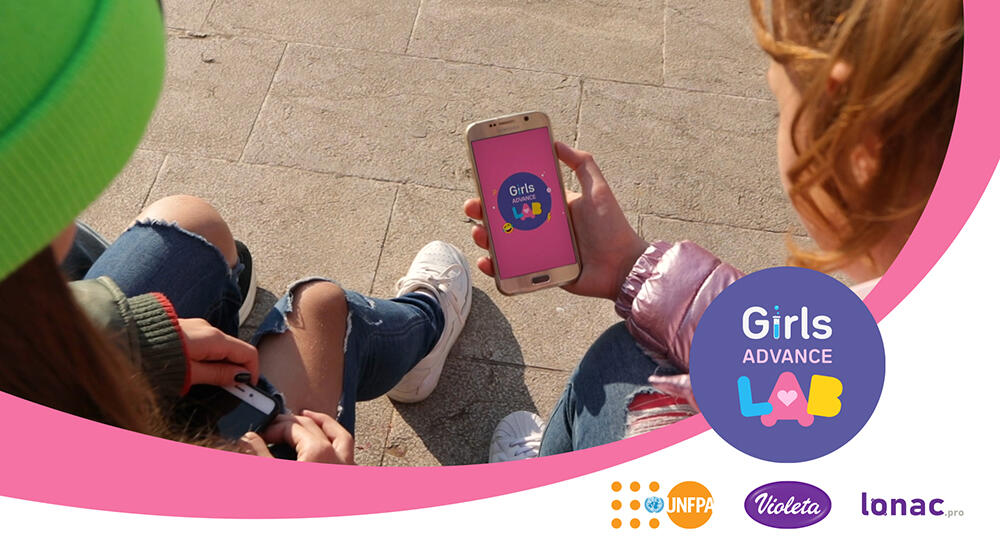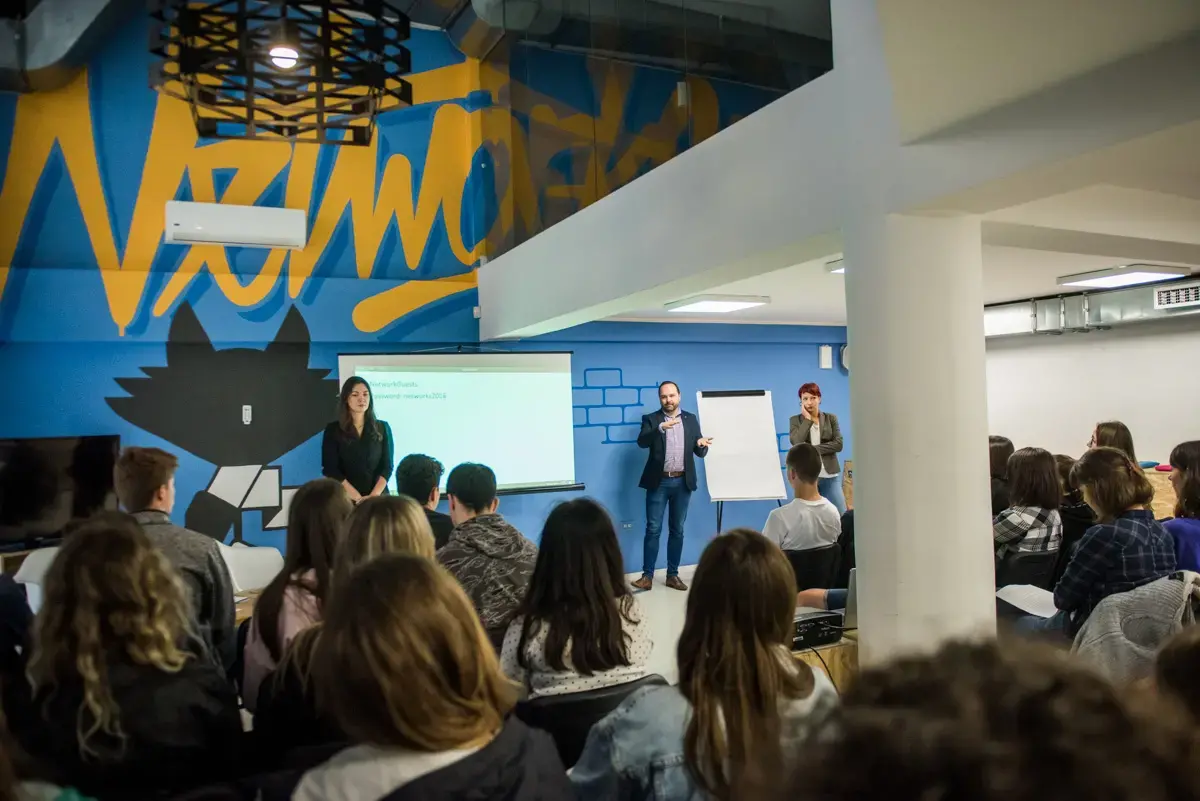“I want to encourage communication about menstruation,” said Azra Komarica, a 19-year-old girl from Bosnia and Herzegovina. “It’s still a taboo topic.”
Ms. Komarica is part of a mentorship based innovation platform called Girls Advance Lab.
The Lab offers support, including funding, mentorship and other resources, for girls aged 13-19 from Bosnia and Herzegovina and Serbia. At the Lab, the girls create solutions aimed at stopping gender inequality and other issues girls and women may face in the society.
Azra works on a chatbot project called My Cyclic Life. The chatbot consists of a list of questions and answers about menstruation and works on the Viber app.

“During this time, I have learned a lot of things related to menstruation,” said Ms. Komarica. “And I exchanged experiences with other girls, too. I learned some useful tips from mentors who helped me a lot in realizing the idea itself.”
The Lab was launched by UNFPA—together with the socially responsible company Violeta d.o.o., Mozaik Foundation and the Belgrade Centre for Human Rights—in December 2020. Girls pitch project ideas, receive support and mentoring and build solutions to problems through the arts, media, Internet, and, as in the case of Azra’s group, mobile applications.
“Our overarching philosophy is that investing in support and empowerment systems geared towards girls is long-term, self-sustaining, and more cost-effective than correcting faulty systems and narratives when they have already grown-up,” said John Kennedy Mosoti, UNFPA Representative for Bosnia and Herzegovina and Country Director for Serbia.

Lara Pantic, an 18-year-old from Serbia, is also part of the Girl Advance Lab. She developed a show on Instagram called ‘Breakfast with a cup of self-confidence’ to help educate girls and women about healthy lifestyle choices. Ms. Pantic talks to nutritionists, coaches, gynecologists and others for the show.
“This experience encouraged me to keep thinking about new ideas,” said Ms. Pantic. “It showed me that dreams really come true. My self-confidence has significantly improved. I would recommend all girls out there to be brave on the path of self-knowledge, not to be embarrassed, to participate in extracurricular activities, workshops and student exchanges, in order to understand what they are good at and then bravely step towards it.”
Girls go through rigorous selection and pitching exercises before joining the Lab. Of the 70 applications the lab has received since launching, 31 have been selected and 97 teenage girls have gone on to the mentoring phase. The Lab is currently supporting 13 projects.
“The most important thing is that with this project I want to make girls aware that all physical changes and situations are normal,” said Ms. Komarica. “My plan for the future is to continue working on applications and programmes that will help girls and women. I would like to send a message to all girls to use their potential.”





